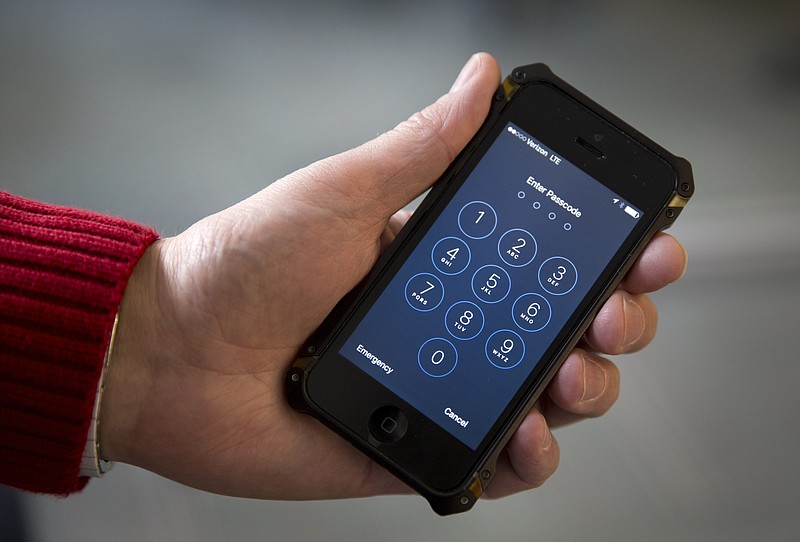It goes without saying that readers are as sick to death as I am about fraudulent phone calls. Certainly, I've written about this topic in the past and what we can try to do as preventative measures. (Not much, unfortunately).
One of the last big scams is the "yes" answer; you pick up the phone only to hear someone ask, "Hello! Is this Ellen?" Some folks would automatically answer "yes" and that's all Sam or Sally Scammer needs to put you on a buying list for that $24.99 or, worse, $24,099 item. When you renounce the purchase, all the "company" must do is play the recording of you saying "yes" to their query and the law usually sides with the cheater. Since most telephone scammers rely on talk, getting you to pick up the phone is crucial so they can give their impersonations of IRS agents, charitable fundraisers, grandkids in need, etc.
According to AARP and NPR, a new breed of telephone fraudsters has arrived on the scene, and sometimes we don't even need to say "Hello" to get ripped off. Watch out for the following:
1. Call Center Fraud – These crimes have more than doubled in the past year, which means they're quite lucrative. Fraudsters spend hours calling the customer service centers of banks, insurance companies and other institutions and pose as people like us to try to access accounts. By asking only a couple of simple authentication questions - maybe your mother's maiden name or the last four of your Social Security number - the institution's representative will, upon the correct answer, transfer money or whatever else is needed. (This is the time I remind everyone never to set up accounts with easily-obtained information as user IDs, passwords, and so forth.)
Scammers start by assembling stolen information on a person, often obtained by simple Google searches or, perhaps, from the dark web. Then, these sleazy people spend all day phoning different call centers to determine if he or she has accounts with those companies. With that data in hand, Carlina Crook can often answer the authentication questions that call centers ask. By the way, ATM PINs are especially valuable and, also, vulnerable. As only 10,000 combinations for a four-digit PIN is possible, unless a bank's system blocks calls after several tries - and some don't - many scammers call back 150 times a day, trying different PINs until they get it right. Then they immediately log in as you, change your PIN and take over your account.
2. Smartphone Swindles – With 20 billion text messages sent each day, is it any wonder attempts at defrauding folks are on the rise? Known as "smishing," this ploy tries to sweet-talk privileged information from the user. Typically, a scam texter will fake a problem with one of your financial accounts and ask you for data; perhaps, the creep will pitch low-cost mortgages or credit cards or even promise free gift cards. If you respond by texting back confidential personal information, BANG! There goes your identity. And what's really frightening is that millions of these smishing texts can be launched simultaneously.
An easy way to prevent smishing is to keep your cell phone number from anyone or entity unless you know the person or organization well. Watch out for mobile apps, too. The fine print in the user agreement, upon installation, may grant permission to the app's developer to use or sell your phone number and, sometimes, even the numbers of your contacts. One more important tip: Never follow a text's instructions to push a designated key to opt out of future messages. Instead, forward the questionable text to short code 7726, so cellphone carriers can block that sender. You can further defend against call-blocking scams with apps such as Hiya, Truecaller, NoMoRobo and PrivacyStar.
3. Temptation calls – As we know, smart scammers now have software that allows them to use fake numbers that tempt us to answer the phone since most of us are now conditioned not to answer unfamiliar numbers (a super practice.) I for one hate to admit these revolting individuals are smarter than I (maybe 'slyer' is a more applicable term), but they definitely seem to come up with more and better tricks on a daily basis to get us to answer the phone. For example, the area code and prefix seem to be local, perhaps from the neighbor a couple of houses down. But because it's a fake number, the police find it harder to track. Another illustration is to have our own number to show up on caller ID, which is really hard to resist. Additionally (and my household gets this one a lot), the one-ring rip-off is becoming more prevalent. Villains sometimes program auto-dialers to make repeated calls to you, each disconnecting after just one ring to induce you into calling back the displayed number to complain.
There's double trouble if you call area codes such as 268, 664 and 876, which are Caribbean countries and other places that have high per-minute phone charges. One scam involves getting you to call one of those numbers, then getting you to hold through transfers that rack up your bill until a scammer gets on the line and starts a fraudulent pitch. The "double trouble" comes in because you've racked up a huge phone bill and, also, become a potential scam victim.
So all together on the count of three: I will never answer my phone unless I know for certain who is on the other end. (Legitimate callers will leave a message.)
Contact Ellen Phillips at consumerwatch@timesfreepress.com

